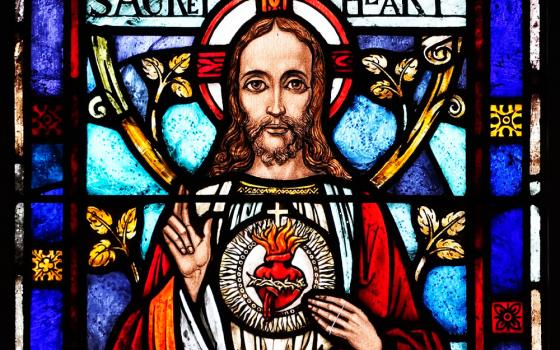NONVIOLENCE: A BRIEF HISTORY
By John Howard Yoder
Published by Baylor University Press, $29.95
Vatican II’s Gaudium et Spes highlighted a thought that serves as a link between these two books: “If peace is to be established, the primary requisite is to eradicate the causes of dissension between” people, because wars “thrive on these, especially on injustice.”
Both John Howard Yoder and Margaret Scott offer not only a theological vision and framework to inspire, but also empirical and practical examples to help enable readers to cooperate with God’s work in fashioning a world where “justice and peace shall kiss.”
On many Catholic college campuses, students who are interested in theology and worship on the one hand and students who are interested in peace and justice on the other rarely come together. We could use more books like these, which construct a both/and bridge between this unfortunate divide.
Yoder, a Mennonite pacifist theologian who taught at the University of Notre Dame in Indiana until dying in his campus office in 1997, and who is best known for his 1972 book The Politics of Jesus, helped the wider church to become more serious about nonviolence and more honest about just war.
Nonviolence: A Brief History, just the latest of Yoder’s previously unpublished works collected since his death, features 11 lectures delivered in 1983 to the Polish Ecumenical Council in Warsaw, at a time when the Solidarity Movement was gaining traction and a month prior to Pope John Paul II’s visit there. This volume continues to be timely today.
In a combination of historical analysis, study of the social sciences and theological reflection, Yoder argues that nonviolence, contrary to initial appearances, ultimately “works with the grain of the cosmos.”
Nonviolence is thus both ethical, congruent with the very character of God, and effective as an instrument for achieving social and structural justice. While this slim volume is rich in theory, it contains helpful and practical lessons from the nonviolent experiences of the past century. As such, I believe it offers a robust theology for students who are interested in nonviolence but have not connected it with their faith, and it provides real examples of effective methods for nonviolent social justice activism for those students who think pacifism makes sense theologically but continue to wonder if it is practical.
“You Catholics go to Mass all the time,” observes Stanley Hauerwas, a Protestant pacifist theologian deeply impacted by his friendship with Yoder at Notre Dame, but he goes on to ask, “What do all those Masses do for you?”
I think this is a fair question, for, after all, if the liturgy is, as Vatican II declared in Sacrosanctum Concilium, the font and summit of the Christian life, then the Mass should inform and transform our character and our choices, both individually and communally, in ways that are aligned with the justice of God that we encounter in the Eucharist.
 THE EUCHARIST AND SOCIAL JUSTICE
THE EUCHARIST AND SOCIAL JUSTICE
By Margaret Scott
Published by Paulist Press, $16.95
In The Eucharist and Social Justice, Scott, a Handmaid of the Sacred Heart of Jesus, and professor of social ethics at St. Joseph’s University in Philadelphia, offers several accessible and moving chapters based on some of the “main movements of the eucharistic celebration” that she suggests are “deeply political and potentially subversive.” From the greeting “The Lord be with you,” to Jesus’ “Do this in memory of me,” Scott teases out how the Eucharist provides a counter “paradigm,” “vision,” “hermeneutical key” or “narrative” to the world’s unjust social structures. The Eucharist, she writes, should “reconfigure” our understanding, “energize” our efforts, and serve as a “catalyst” for social justice on a range of issues we face, including globalization, immigration, the environment, poverty and war.
Peppered throughout are vivid anecdotes from Scott’s own firsthand experiences in India, the Philippines, and South and Central America. She gives many concrete examples of what these eucharistic insights look like in practice, such as truth and reconciliation efforts in South Africa and Northern Ireland.
Although she claims that the Eucharist has changed her perspective, to me it seems instead that her firsthand experiences with, for example, the women who live in a shantytown in Santiago, Chile, have changed her perspective on the Eucharist. As she notes in the preface, “Clearly, I am talking about the Eucharist as it is meant to be, as it can be.”
Both books are recommended for parish discussion groups and for the college classroom. They will be especially helpful for those seeking clearer connections between their faith and their nonviolent efforts toward social justice, or between their theology courses and their service trips in the two-thirds world. That is, these two books carve out a space where not only justice and peace, but also theology and worship, kiss.
[Tobias Winright is associate professor of theological ethics at St. Louis University in Missouri.]




